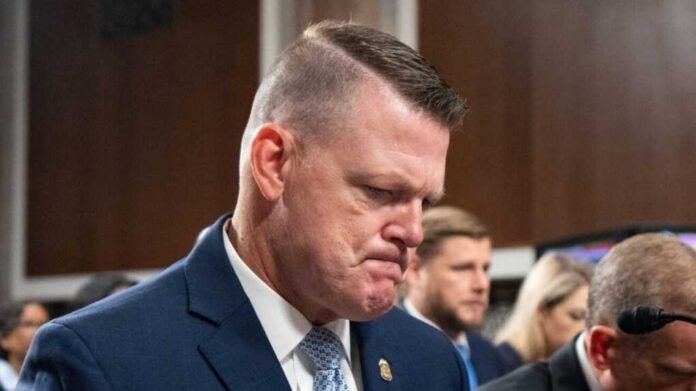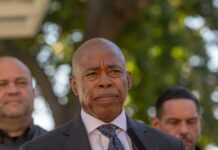
Senator Ron Johnson, R-Wis., has voiced serious concerns about the obstruction his committee is facing from the Department of Homeland Security and the Secret Service in its investigation into the assassination attempt on former President Donald Trump. As the ranking member of the Homeland Security and Governmental Affairs Committee’s (HSGAC) Permanent Subcommittee on Investigations (PSI), Johnson expressed frustration at the lack of crucial materials necessary for the investigation. His comments underscored the absence of key reports such as the autopsy, toxicology, and bullet trajectory reports, which are essential to understanding the events of July 13, when Trump narrowly escaped an assassination attempt at a rally in Pennsylvania.
Johnson expressed how upset he was, noting that critical information is still missing months after the incident. He remarked, “There’s just basic information we should have right now, and we don’t have it.” The senator also noted the delayed interviews with key witnesses, particularly the sniper who neutralized Thomas Crooks, the would-be assassin. Crooks fired at Trump, grazing his ear, killing a rally attendee, and injuring two others before being taken down. The sniper, who played a pivotal role in preventing a greater tragedy, remains unavailable for an interview by the committee—a situation Johnson finds alarming.
The senator further revealed that the FBI has not provided any FD-302 forms, which summarize interviews conducted during investigations. This comes despite assurances from FBI Deputy Director Paul Abbate during a July hearing that the forms would be supplied promptly. Johnson’s frustration mounted as he disclosed that while the FBI has conducted over a thousand interviews, his committee has managed only twelve. This discrepancy, along with the heavily redacted documents the committee has received, points to what Johnson described as “slow-walking” by the agencies involved.
One of the most peculiar aspects of the investigation, according to Johnson, is the nature of the redactions in the documents provided. Traditionally, redactions are done in black, clearly marking the sections that have been removed. However, in this case, many of the redactions appear as white spaces, making it unclear what information, if any, has been redacted. Johnson remarked on this unusual practice, saying, “That’s the level of opacity that we’re getting in terms of their lack of cooperation with our investigation.”
Adding to the frustration was a recent briefing by Acting Secret Service Director Ronald Rowe, which Johnson claimed did not provide any new or useful information to the senators. Despite the Secret Service’s assurances of cooperation, Johnson noted that the few documents they have received were “heavily redacted” to an extent he had never seen before.
Secret Service is stonewalling: it’s been over 2 months since the Butler assassination attempt
Secret Service has yet to hand over docs. Why? pic.twitter.com/f3pZFy5PBN
— Josh Hawley (@HawleyMO) September 19, 2024
In response to the senator’s allegations, the Secret Service reiterated its commitment to cooperating with multiple congressional investigations. A spokesperson for the agency noted that over 2,800 pages of documentation had been provided, and employees were made available for interviews. The spokesperson also cited the volume of requests and limited resources as reasons for any perceived delays, noting that the agency is prioritizing its responses accordingly.
🚨🚨 NEW – A whistleblower now tells me that Secret Service apparently ignored “known vulnerabilities” surrounding Trump’s golf course, leading to the assassin spending 12 hours in wait
Secret Service must give us answers pic.twitter.com/tkyZCSmeGn
— Josh Hawley (@HawleyMO) September 19, 2024
However, for Johnson and his committee, these explanations fall short. The senator remains skeptical of the agencies’ cooperation, pointing to the ongoing lack of access to crucial materials as a significant barrier to uncovering the truth behind the assassination attempt on Trump. As the investigation drags on, Johnson’s concerns raise serious questions about transparency and accountability in an investigation of such magnitude.






















